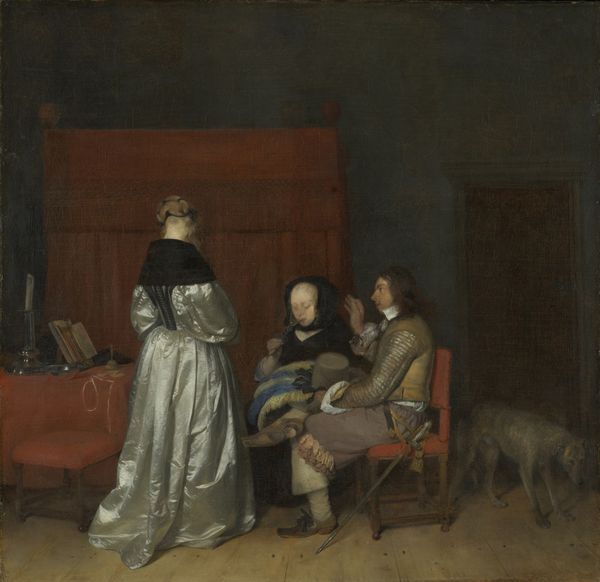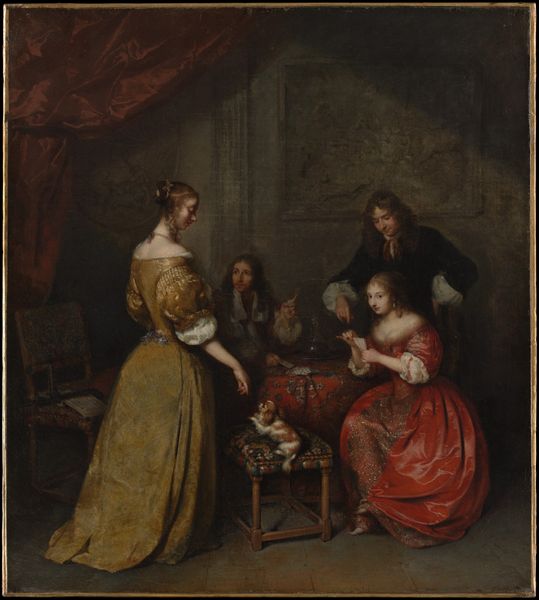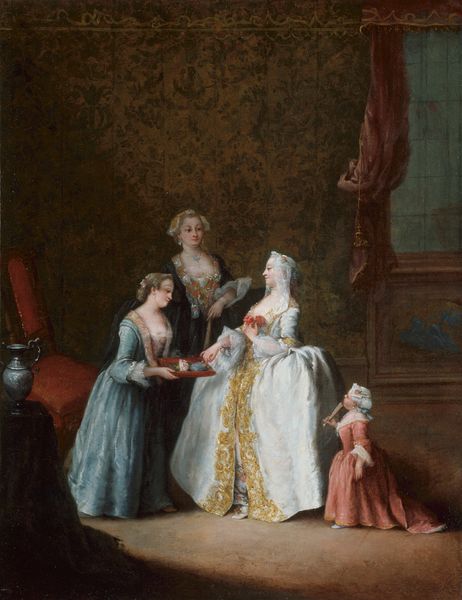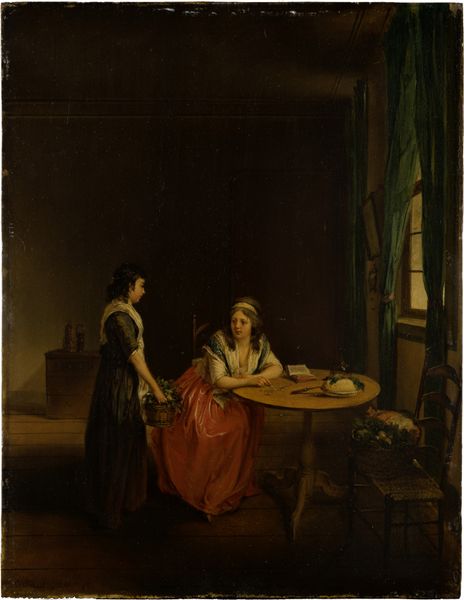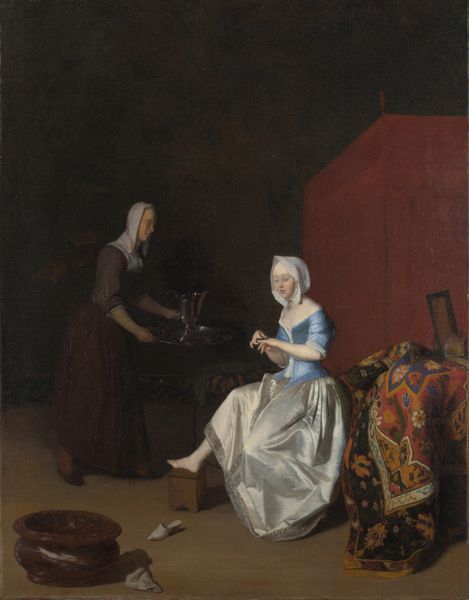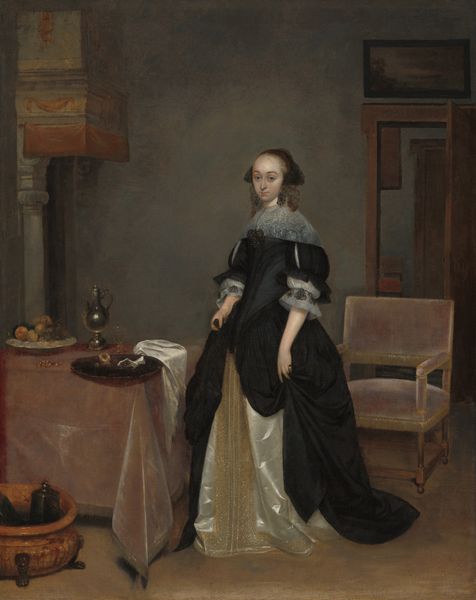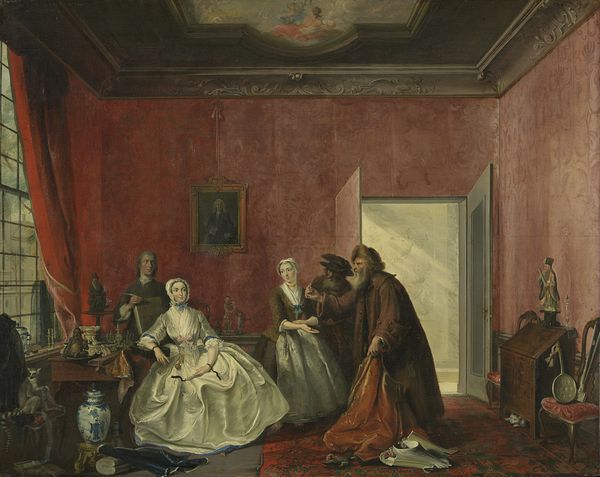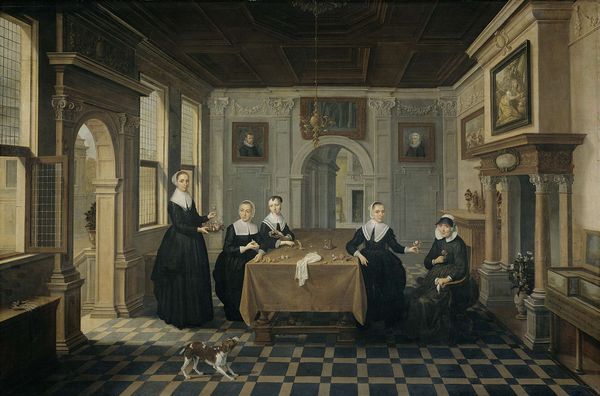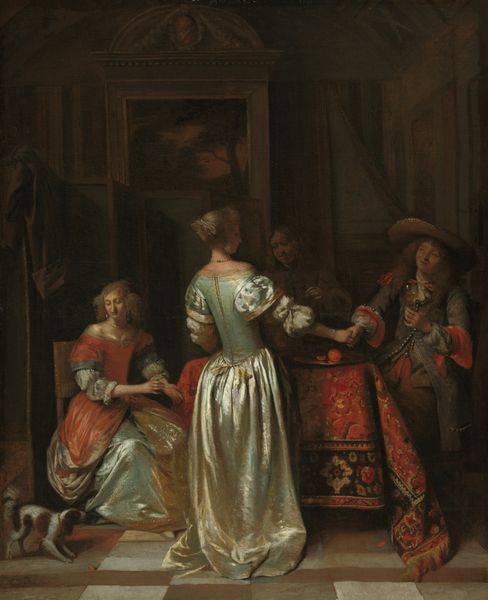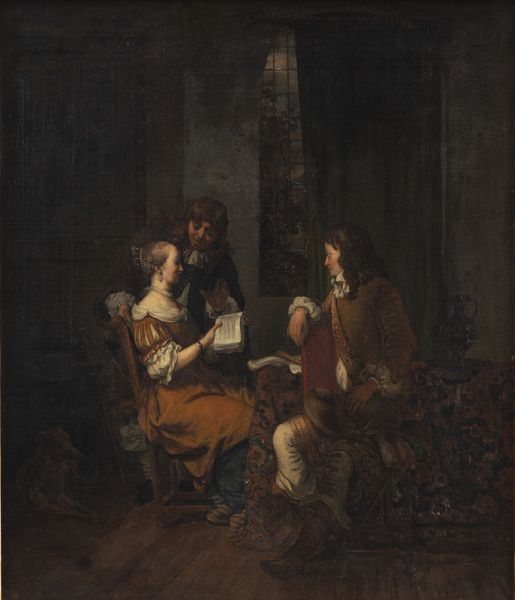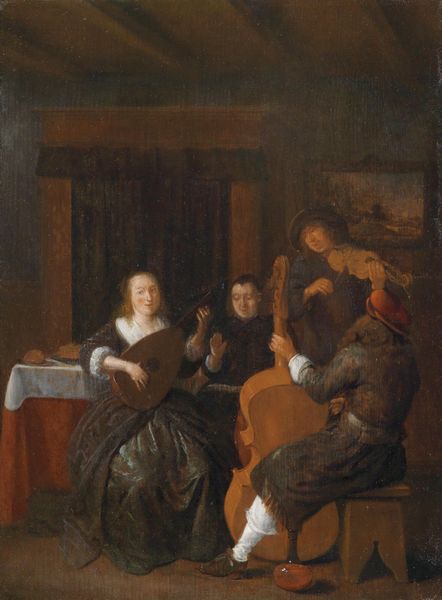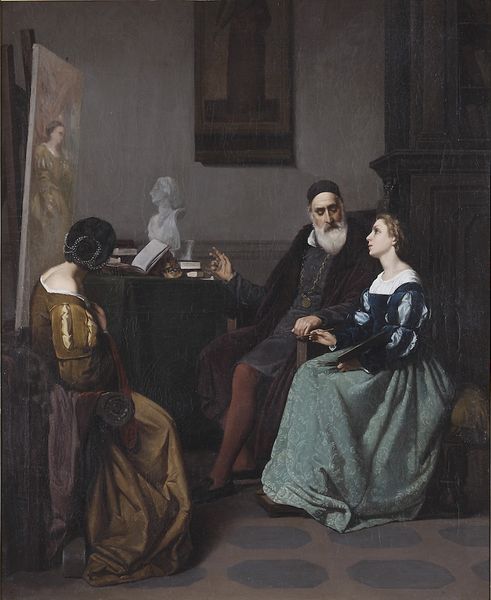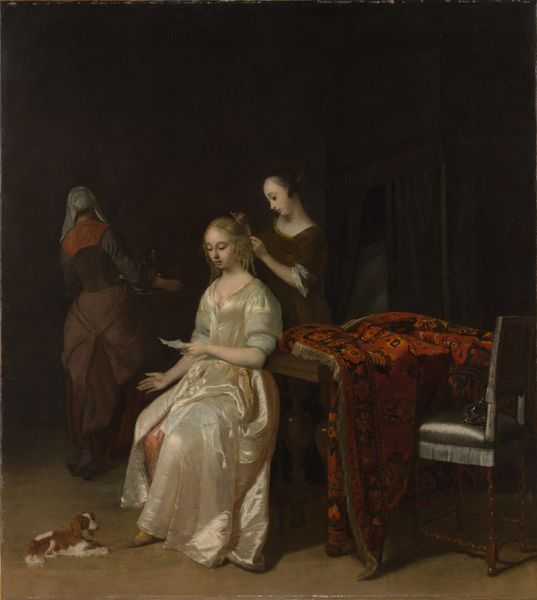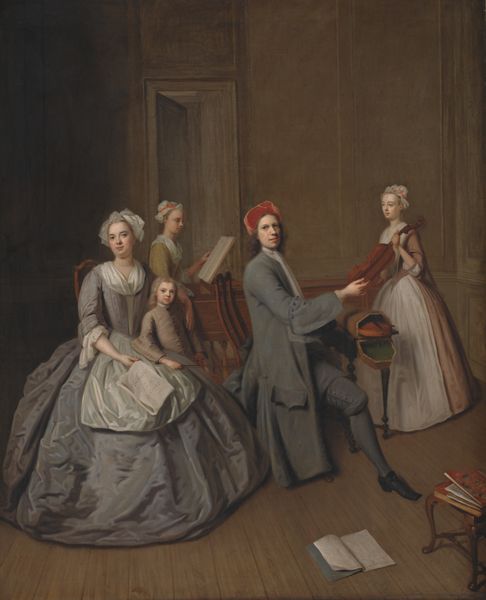
oil-paint
#
portrait
#
dutch-golden-age
#
oil-paint
#
dog
#
genre-painting
Dimensions: 30 x 24 1/2 in. (76.2 x 62.2 cm)
Copyright: Public Domain
Curator: Editor: Here we have Gerard ter Borch the Younger's "Curiosity," created sometime between 1660 and 1662, using oil paints. It’s currently housed at the Metropolitan Museum of Art. I'm immediately drawn to the textures of the clothing, especially the shimmering satin of the woman standing on the left. What details strike you most? Curator: It's interesting how you focus on the surface appearance, because I’m particularly interested in what this painting reveals about 17th-century Dutch society and the materiality of everyday life. Note the prominent display of luxury fabrics. What does the availability and the social status of these textiles tell us about global trade networks and power structures of that time? Editor: So, it’s not just pretty clothes, but a record of how things were produced and consumed? That's a totally different way to see it! Does the fact that it’s oil paint also contribute? Curator: Absolutely! Oil paint itself was a commodity. The availability and sophistication of pigments and binding agents were all products of a growing economy and advancements in material science. Moreover, consider the labor involved – from grinding pigments to applying layer upon layer of paint. Are you suggesting that it's all interconnected? Editor: Exactly. It’s amazing to think of how much economic activity and human effort went into creating just one painting. I'm never going to look at old paintings the same way again! Curator: Precisely! Focusing on the material conditions challenges this idea of art being separate from the material world, or labor.
Comments
No comments
Be the first to comment and join the conversation on the ultimate creative platform.
